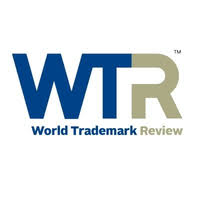Forbo v EUIPO: beware of what you eat before the deadline for filing a brief
Par Richard Milchior, le 9 février 2021
Article publié dans World Trademark Review

– In this unusual case, the opponesed a deadline after falling violently ill
– At issue before the court was the probative value of the sworn statements filed by the lawyer and his spouse
– The court found that the request for restitutio in integrum should be granted
On 16 December 2020 the General Court issued its decision in Forbo Financial Services v European Union Intellectual Property Office (EUIPO)
(Case T-3/20).
Background
This case is quite unusual. Forbo filed an opposition against an EU trademark application and the opposition was rejected. An appeal was filed on 6 April 2019. The deadline to file the statement of the grounds of appeal was 12 June 2019 at midnight. However, the statement was filed only on 26 June with a request for restitutio in integrum based on Article 104 of Regulation 2017/1001 in order to recover the rights lost due to the expiration of the deadline. The reason for the request was that the “lawyer who was initially in charge of the case had suddenly become very sick”, and this allegation was substantiated by two solemn affidavits filed by the lawyer himself and his spouse.
The facts of the case show that the lawyer’s clients were based in Switzerland and had received the draft statement of grounds and accepted it on 3 June 2019. The lawyer had then waited until 12 June in the morning to request the paralegal in charge of trademark cases to prepare the statement, as well as the annex and evidence, ready for him to sign.
The lawyer had several conference calls that day and went out for a late lunch. His paralegal left at around 5pm after again asking the lawyer to sign the documents. He answered that he would do it later and would send everything himself. At around 6.30pm, the lawyer suddenly felt very sick and left by taxi to go home without having signed or sent the documents, and without being able to ask anybody in the office to do it. He did not consult a doctor the same day and realised only the next day that he had not send the documents.
Decision
At issue before the General Court was the value of the two sworn statements, and whether to take into consideration the fact that the lawyer did not later ask for a doctor’s certificate. The explanation given by the lawyer was that it would have been too late on 13 June to assess whether he was very sick the day before. The decision mentioned that he had recovered by 13 June.
The General court accepted the probative value of the two sworn statements, accepting the notion that:
– no one, apart from the lawyer’s spouse, could have testified about what happened on 12June in the evening at home; and
– it was acceptable that the lawyer decided to go back home and did not consult a doctor either before or after falling ill due to the type of symptoms (which were not revealed).
Therefore, the court decided to grant the request for restitutio in integrum.
Comment
Arguably, one may accept the fact that the court granted probative value to the solemn declaration made by the lawyer to explain what happened to him. However, the decision does not explain why it was acceptable for the lawyer to wait until 26 June (ie, 14 days later) to file the statement and the request for restitutio in integrum, especially as he declared that he was well again on 13 June. One may wonder why he needed so long to file a statement which was ready to be filed and how this could be accepted by the court.
This may open the door to numerous quasi-abusive requests for restitutio in integrum, and it will be interesting to see whether the EUIPO appeals the decision.
This article first appeared on WTR Daily, part of World Trademark Review, in january 2021. For further information, please go to www.worldtrademarkreview.com.

